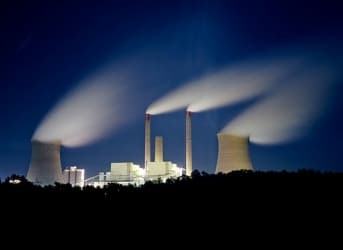Australia, despite being deeply committed to curbing greenhouse gas emissions GGEs, is nonetheless experiencing a fossil fuel surge.
The growth comes despite a carbon tax, due to be implemented later this year, which is deeply unpopular with the country’s mining industry.
According to the government agency Geoscience Australia, in fiscal year 2011 coal exploration spending in Australia surged by 62 percent, with investment in exploration for new coal deposits reaching $520 million, with spending on exploration surging faster than any other mineral commodity. Australia’s coal is abundant and considerably less expensive than other energy sources, with the country’s black coal reserves located primarily in New South Wales and Queensland, along the eastern seaboard where the majority of electricity is generated and consumed. The country also has substantial reserves of lower-grade brown coal (lignite), located primarily in the Gippsland Basin of Victoria, with Australia possessing an estimated 25 percent of the world’s economic demonstrated resources (EDR).
Australia is the world’s leading coal exporter, with exports rising more than 50 percent in the last decade, now being Australia’s second largest export commodity.
Aside from the export market, black coal now generates 54 percent of the nation’s electricity needs and Australia's greenhouse gas emission levels remain the highest per capita in the developed world.
The coal exports go primarily to Asia. Japan imports 39.3 percent of Australia’s coal exports and in 2011 bought a total of 115.3 million tons. Canberra’s second largest coal export market is China, having bought 42.4 million tons in 2009-2010, almost double the previous year. South Korea in 2011 purchased 40.7 million tons, India 31.92 million tons of Australian coal and Taiwan purchased 26.53 million tons. The Australian government projects that Chinese and Indian demand for its coal will increase dramatically over the next ten years in line with these countries’ projected need for coal for energy and manufacturing.
Coal has also advanced the country’s fiscal “bottom line.” Given the country’s emphasis on mineral exports, Australia was the only one of the world’s 33 advanced economies to grow in 2009 during the worst global recession since the Great Depression.
The carbon legislation, which passed Parliament last year and is scheduled and go into effect on 1 July, will force the country's 500 worst polluters to pay $25 for every metric ton of carbon they emit. Since the legislation’s passage Prime Minister Julia Gillard has been strenuously defending the tax against critics who allege that major polluters will simply pass the higher costs onto ordinary Australians and that the surcharge will lead to job losses, particularly in the mining industry. Australia is one of the worst greenhouse gas polluters in the world because of its heavy reliance on coal to generate power.
Not surprisingly, Australia’s coal industry has been one of the most vociferous critics of the tax. Shortly after the legislation passed Australian Coal Association executive director Ralph Hillman told journalists that the industry projected that the tax would result in the closure of 18 mines in Queensland and New South Wales states, cost 4,700 jobs and cost more than lead to $23.6 billion in lost revenue, while the association noted in a press release, "By 2020, coal consumption will be 50 percent higher than it is today. Decreasing the use of coal and other fossil fuels in order to cut greenhouse gas emissions is simply not a realistic option for the foreseeable future."
In defense of the tax, Australian government officials noted that the European Union, several U.S. states and New Zealand already have legislation requiring polluters to pay for carbon emissions.
The fact remains that despite the doomsday prophecies of the coal industry about the imminent carbon tax, Australian coal exports are booming and seem destined to do so for some time, and not everyone is happy with coal’s growing prominence in the country’s exports. Conservation Foundation climate campaigner Claire Maries said that the nation needed to move away from a pollution-dependent economy, telling journalists, ''The government should… remove subsidies the mining industry takes from the public purse, like special exemptions for exploration, accelerated depreciation for investors and senseless concessions for fuel use.''
Given that coal currently supplies more than 40 percent of the world’s energy needs is the most abundant fossil fuel with more than one trillion tons in reserve, equivalent to more than 120 years' worth of global use, its seems unlikely that Australia will run out of customers anytime soon.
It remains to be seen as to whether the coal producers’ apocalyptic visions of the damage the new carbon tax will inflict on their industry will come to pass, but in general, finding energy companies in favor of increased taxation, even for as laudable a goal as the environment, is as likely as finding a wallaby in Taipei speaking fluent Cantonese.
By. John C.K. Daly of Oilprice.com


















